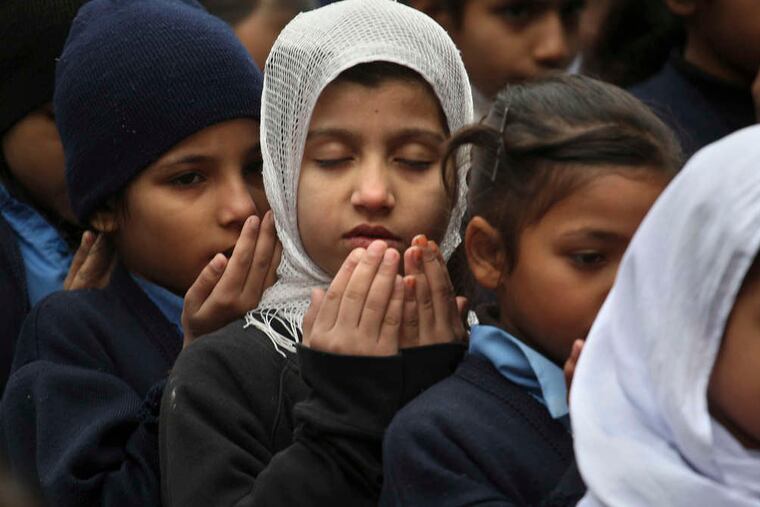Pakistan lifts moratorium on executing terrorists
PESHAWAR, Pakistan - Pakistan's government lifted a moratorium on executing convicted terrorists Wednesday and sought Afghanistan's help to find the mastermind of Tuesday's murderous attack on an army-run school in the northern city of Peshawar, as the death toll rose to 148.

PESHAWAR, Pakistan - Pakistan's government lifted a moratorium on executing convicted terrorists Wednesday and sought Afghanistan's help to find the mastermind of Tuesday's murderous attack on an army-run school in the northern city of Peshawar, as the death toll rose to 148.
There was a national outpouring of grief, shame and anger at the attack, in which 132 schoolchildren, many of them the sons of military officers, were killed.
Staff at Peshawar's Lady Reading Hospital and at a military hospital in Rawalpindi fought to save the lives of dozens of critically injured victims, repeatedly issuing calls to the public to donate blood.
The leaders of Pakistan's political parties set aside bitter rivalries at a conference in Peshawar, called by Prime Minister Nawaz Sharif, to develop a consensus on legislation dealing with the trials and convictions of terrorists, an issue that successive governments have failed to settle since the Pakistani Taliban launched an insurgency in 2007.
Sharif set the agenda by announcing that he had lifted a six-year moratorium on capital punishment, which a previous administration had put into place under the human-rights terms of a preferential trade agreement with the European Union.
Pakistan's ceremonial president, Mamnoon Hussain, responded immediately Wednesday by rejecting mercy petitions filed by eight convicted terrorists in 2012, and his office ordered the administrators of the prisons where they're being held to carry out the executions, the Pakistani media reported.
Sharif's populist measure came as Pakistanis reacted to the horrific Taliban attack Tuesday on an army-run school in Peshawar, as its victims were buried.
Funerals in absentia, a Muslim custom, were held for victims around the country. Most schools were closed for the first of three days of national mourning declared by the government, while students and teachers at some gathered briefly to pray for the dead and wounded. Impromptu candlelight vigils sprang up in some cities.
Amid the mourning, the army chief of staff, Gen. Raheel Sharif, traveled to neighboring Afghanistan, brandishing intelligence that the school attack had been planned by Pakistani militants who had relocated to eastern Afghanistan to escape the military's campaign in the adjacent Pakistani tribal area of Khyber.